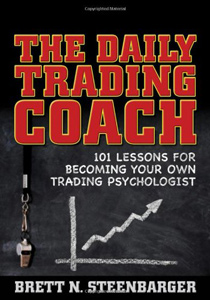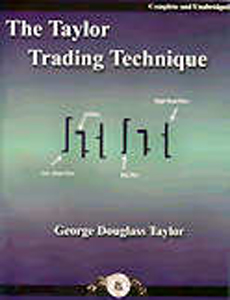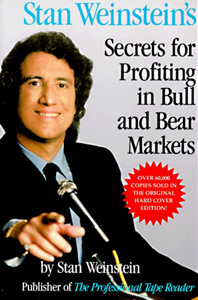How a Stockbroker Works for You

Further Reading
What is the exact role of the broker when it comes to buying and selling your shares on the sharemarket. How can a broker help you decide which shares to buy and sell? Once you have placed a trade with your broker either by telephone or online, what happens now? What happens to your shares and what role does your broker play?
Decide What You Want From Your Stockbroker
Even before that process begins you have to decide what to invest in and your broker can help you come up with an investment strategy. Tools and calculators are also available on websites that are designed to help your decision making. For example, there are advanced company search tools at CommSec which enable investors to compare stocks in say, dividend yields (that is, which shares provided the best rate of income over the last year). Or you might want to check on Price Earnings Ratio if you wanted to target shares that have good growth potential.
Many brokers offer such services as company announcements, forecasts, market and economic reports, analyst’s research and recommendations. But it is still up to you the investor to do the research. Once you’ve come to a decision on what shares to buy and sell you simply tell you broker the name of the company, the number of shares you wish to trade and the target price. Or if you trade online, it’s as simple as entering the details yourself, and the order will proceed.
Before 1987 there were six state stock exchanges. Each had their own trading floor. Men and women in loud jackets would shout out orders from the floor as the “chalkies” raced up and down in front of a huge blackboard recording all the locally-listed shares as they either went up or down in price. But in the late 1980s all that changed and the stock exchange in Australia entered the digital world, trading the floor for SEATS. Now an order can be entered electronically from any stockbroking office around the country.
Decide the Type of Order You Want Your Stockbroker to Execute
You need to consider whether you want to place the order “at market” – which means your order will be filled at prevailing market price – or “at limit” – which means you set a price at which you are willing to buy or sell your shares. You will usually be asked to confirm the details prior to the order going to market. Once the order is entered it is placed in a queue until a buyer’s bid matches a seller’s offer and the computer will than automatically execute the trade. Beneficial ownership of the shares transfers immediately once the trade has been executed and a confirmation contract note issues that day. Payment for the transaction takes place at T+3 (that is, three days after the transaction has taken place).
Then, all ASX-listed shares are registered electronically on either the Clearing House Electronic Sub-register System (CHESS) operated by ASX, Settlement and Transfer Corporation (ASTC), a subsidiary of ASX, on behalf of listed companies or on the companies’ own registers.
The mechanics of how your share trades are settled will depend on where you decide to have your shares registered. If you arrange to have your broker act as your CHESS sponsor, your broker will be able to electronically register details of your purchases or sales by reference to your Holder Identification Number (HIN). Alternatively, you can elect to have your parcel of shares issuer-sponsored on the company’s own register, and have a Security Reference Number (SRN) issued to your own share parcel.
Your Funds with Your Stockbroker and Brokerage Fees
Many brokers require you to provide funds before accepting your first order to buy shares while some brokers require you to establish a cash management account to facilitate funds transfer. If you are placing an order to sell shares, you will need to provide the relevant ownership information, either the HIN or SRN, which enables your broker to authorize transfer of the shares to the new owner. If you place your order with a broker, the broker may agree to contact you if a trade takes place. Regardless of how you place your order, your broker will send you a contract note if your order results in a trade. The contract note will show the details of the trade including any amount you need to pay or will receive. When you buy and sell shares on ASX, typically your only costs are brokerage for each trade and GST on the brokerage amount.
All brokers will provide you with a Financial Services Guide (FSG) setting out services they offer and the costs involved. Some firms charge a flat fee for transactions up to certain limit. Most firms charge a minimum fee for all transactions. Minimum fees currently range from approximately $20 (online broker offering no advice) to $100 (full-service broker providing advice and research) or more per buying and selling transaction. So, the value of your shares may only need to increase by a relatively small amount for you to recoup your entry costs.
Some brokers may also negotiate the brokerage rate based on your expected requirements including size and frequency of trading and any other business you have with the firm. When starting out, investors may wish to consider their level of need for advice and guidance when deciding on the type of broker that most suits them. And with online trading now providing an easier and more affordable option for the beginner and experienced investor, it’s a great time to take the bull by the horns.
- How to Trade Forex and Gold Options
- How to Trade the Gold Price and Profit!
- Forex Trading the EUR/USD Pair € EURO and $ US Dollar
- How to Trade Stock Market Indices S&P500
- How to Trade Crude Oil
- Forex Trading Psychology
- What Are Broker Recommendations?
- Free Tickets to Trading & Investing Seminar & Expo ($18) Brisbane 2013
- Stock Calc App
- All About Warrants
- Introduction to Exchange Traded Funds
- Introduction to Exchange Traded Funds: Features
- Introduction to Exchange Traded Funds: Domestic ETFs
- Introduction to Exchange Traded Funds: International ETFs
- Exchange Traded Commodities
- Australian Stock Scan
- Australian Online Share Trading
- List of Trading Books
- Interesting Thoughts about the Australian Dollar
- What's the Meaning of Hawkish?
- Do You Know How To Use the P/E Ratio
- Trading, Religion and Politics - Do They Have Anything in Common?
- Shares that are Volatile that Double and Half in the Short Term
- Telstra (TLS) T3
- Margin Call by E-mail
- The Cost of Holding a Position
- Lack of Disclosure: Compensation from ASX Listed Company
- Unrealistic Returns and Benchmarks
- CMC Markets Down
- Quality versus Quantity Forex Trading
- Woolworths 1H Sales $30.7bn up 3.2%
Date added 31-01-2013 - ASIC Fines CommBank's CommSec
Date added 25-09-2012 - Industry Super Network Calls to Ban High Frequency Trading (HFT)
Date added 22-09-2012 - NAB Launches Online Share Trading Platform
Date added 19-09-2012 - Reserve Bank of Australia Says 23 Countries Holding AUD
Date added 18-09-2012 - Australia Post Digital Mailbox
Date added 10-09-2012 - Winners and Losers of Trading for Week 2
Date added 16-01-2012 - 2012's First Week of the Best and Worst Traded Stocks
Date added 09-01-2012 - 2011's Last Best and Worst Traded Stocks
Date added 05-01-2012 - Best and Worst Pre-Christmas Traded Stocks
Date added 30-12-2011 - Trading Winners and Losers for Dec. 12-16
Date added 19-12-2011 - Best and Worst Traded Stocks for Dec. 5-9
Date added 13-12-2011 - Top 3 Best and Worst Traded Stocks
Date added 05-12-2011 - ASX Glitch Trading Halt
Date added 27-10-2011 - Worst Trade Stocks (and the Best)
Date added 06-08-2011
Top 150 Public Companies Listed on the Australian Stockmarket as at 29/05/2009
- BHP Billiton
- Westpac Banking Corporation (WBC)
- Commonwealth Bank of Australia (CBA)
- National Australia Bank (NAB)
- Telstra (TLS)
- ANZ
- News Corporation (NWS)
- Woolworths Limited(WOW)
- Woodside Petroleum Limited (WPL)
- Rio Tinto
- Westfield Group (WDC)
- Westfarmers Limited (WES)
- QBE Insurance
- CSL
- Newcrest Mining Limited (NCM)
- Origin Energy Limited (ORG)
- Santos Limited (STO)
- AMP Limited (AMP)
- Macquarie Group (MQG)
- Foster’s Group Limited (FGL)




